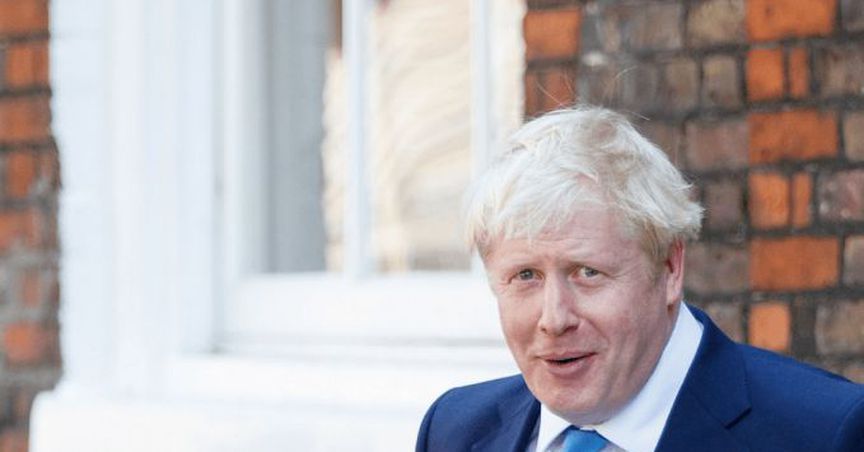After the formal exit from the European Union by the United Kingdom on the 31st January 2020 and with the beginning of the transition phase, the United Kingdom administration has started working on getting trade agreements with not just the EU27, but all the other allies, especially the United States of America. The primary targets include to have trade agreements in place for the retail and automotive sectors, because those are the ones that already have been impacted and are further expected to feel the consequences of the Brexit. Retail has been the sector that has been hit the most, as the flow of the raw materials coming from the other European Nations has been either broken or slowed, hampering the trading activity of the companies in the sector.
Though, it has been recently reported that the UK Auto sales have increased in the month of January, significantly because of a major jump of around 220 per cent in the demand for electric vehicles. To support such increase in the demand, the United Kingdom also needs to put in agreements in place with companies from other countries who can invest in UK to build Gigafactories.
Let us have a look at some of the reactions coming from the UK administration as well as other parties and what is the UK governmentâs stance on the trade agreements with the EU27.
Reactions post Brexit
Boris Johnson mentioned that this is the dawn of a completely new era for the United Kingdom, where the citizens of the country do not have to accept chances, rather they should depend on the country to provide the best of opportunities. The Prime Minister also mentioned that the important themes in this new era would be suppressing criminal activities as well as civil wrongdoings, transforming the healthcare system, and moulding it in such a way that everyone has the access to quality healthcare, all this, leveraged through a high grade technological revolution.
- The UK's position:
Boris Johnsonâs main negotiating point with the European Union is that the UK wants a free (and fair) trade agreement (FTA) that will include no tariffs, fees, charges or other monetary markers on goods and services either being imported to or exported from the United Kingdom. The major hesitation on the UKâs part is in the signing of a so-called regulatory alignment, as a part of which, the UK would have to follow the European Unionâs lead on standards and adopt the EUâs norms, thus having a similar treatment as they did being a part of the European Union. The prime minister has also mentioned that there is absolutely no requirement for the free trade agreement to start abiding European Union norms on rivalry arrangement, sponsorships, social insurance, the environmental factors, or anything comparable other than the EU ought to be obliged to acknowledge UK norms. He said that he hoped that the EUâs negotiators as well as the member nations had gotten the message regarding the same by then. He also mentioned that the UK had made a choice that they wanted a free trade agreement with no frills attached, a one agreement, that is similar to the one between USA, Mexico and Canada which is called North American Free Trade Agreement (NAFTA). After taking this firm stance on the whole situation during the beginning of the transition period, the prime minister also stated that in case an agreement is not reached between the two parties, then the trade will have to be based on existing Withdrawal Agreement with the EU.
- The EU's position:
The European Union Councilâs position on this has remained consistent that they will offer a zero tariff, zero quota trade deal on all goods to its market of 450 million people, but only if the UK signs up to equal right as well as guarantees and makes agreements for the purpose of EUâs continued access to British fishing waters. In this positional statement, offered by chief negotiator of the European Union side, Mr Michael Barnier also stated that all inbound products and services should be in compliance to the European Union norms so they will be dependent upon administrative checks and any exchange accord will be beneath the EU membership, the advantages of which UK had previously enjoyed. He additionally blamed Boris Johnson for shifting the target lines, something with Foreign Secretary Dominic Raab had recently said was valid for Brussels, in light of the fact that the political affirmation of the EU Withdrawal Agreement - a non-authoritative concurrence on future exchange had a full part on the equivalence for both parties and the target of having fair as well as open competition on both the sides. Mr Barnier also mentioned that there canât and shouldnât be any changes from UK side as they have already made agreements on certain terms and conditions previously, which they are completely shifting from and there can't be any tremor on the off chance that the EU is acting in accordance with some good faith in regards to the whole situation.
Performance of Pound after this geopolitical turmoil
Following Boris Johnsonâs warning to the European Union regarding the non-acceptance from Britain of the EU trade norms in any Brexit trade deal, the pound declined sharply. While at the same time European Union threatened to take steps to put duties on UK goods and services if UK did not go along and comply. Relentless selling of Pound Sterling by investors started in the commodity markets, soon after the UKâs Prime Minister Boris Johnson and the EUâs chief negotiator, Michel Barnier outlined hard opening stance for post-Brexit trade talks, leading the Pound Sterling drop more than two US Cents against the dollar and about one cent as compared to the Euro. The currency fell by 1.3 per cent and was reportedly trading at US $1.30 against the dollar and by about a per cent to below â¬1.18 versus the Euro, as various investors and businesses warned that any disruption to firms from higher new trading obstructions would hurt development in UK and the EU both.
Outlook
Even though a withdrawal agreement has already been signed between the two parties and a bill in this regard has also been passed in the UKâs House of Commons, it seems like both parties are now pushing each other following Britainâs formal exit on 31st January 2020. The intention from both sides is clear, it is to obtain best terms for their citizens and businesses from the other side, so that their economies and individuals do not have to suffer.
It is also important to understand that a hard separation between the two parties is likely to cause a major friction in trade relations, primarily because each of the two are heavily dependent on each other for their major trade. This geopolitical tug of war is likely to continue for some time in the future, at least till the end of this year, and will keep the citizens and businesses of European Union as well as the United Kingdom uncertain. This will also have a major impact on other global businesses, who might not want to bring in any money or continue to invest in the two economies or their businesses due to such high uncertainties, especially in terms of tariffs and quotas on products and services.
Both sides have set hard agendas and are not ready to budge on what they want. Boris Johnson seemingly thinks that EU will need the UK more than them and hence, he is taking such a hard stance through his statements and the terms that he is demanding in the trade deal, hence, it will take another few months to see what kind of impact does these tensions bring in for both the parties.
Â




